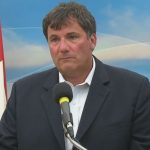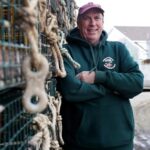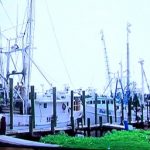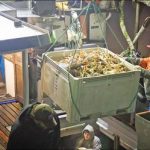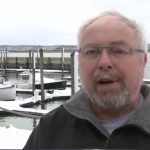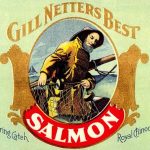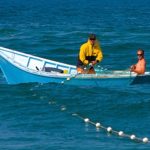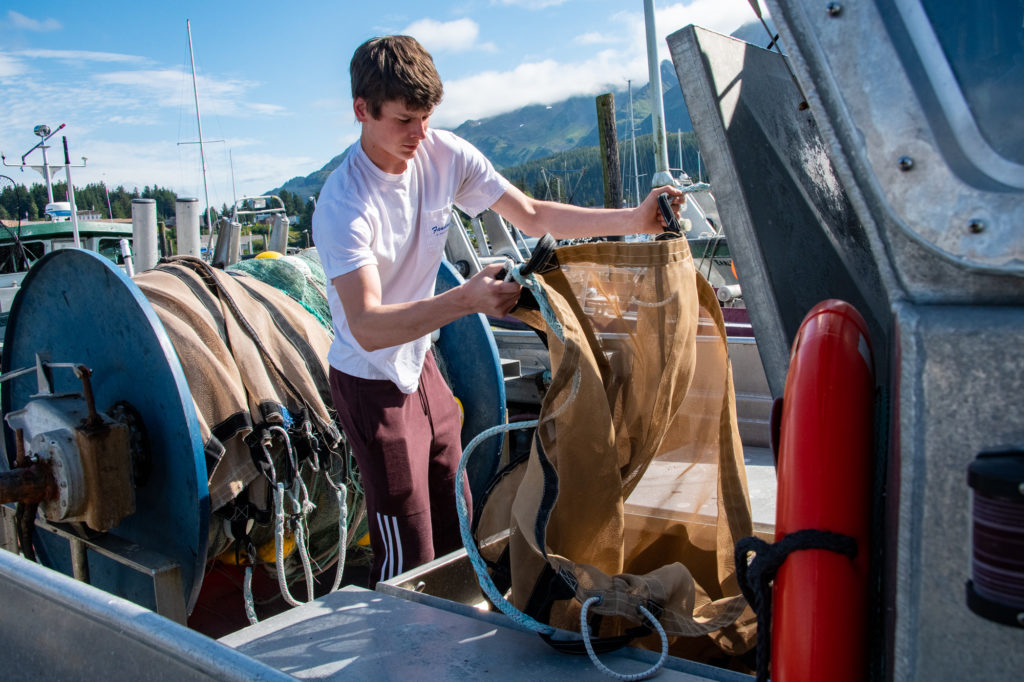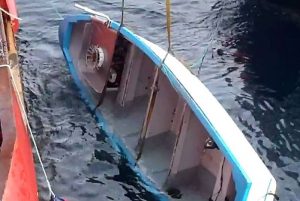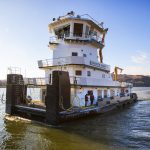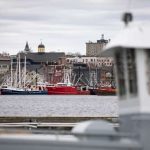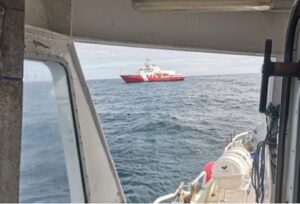Tag Archives: Department of Ecology
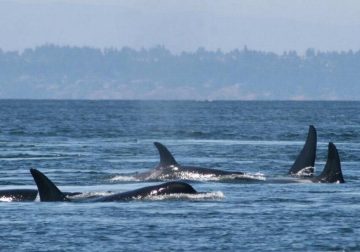
Puget Sound pollution is the culprit causing orcas’ demise
In my Feb. 3 column, I argued the real matter with the southern resident orca pods was tied to swimming in polluted waters and eating polluted fish that live in those polluted waters connecting them together. Ecologically, it’s a very complex issue. It’s a combination of many factors that affect fish and orca.,, Treated sewage discharges may contain fecal bacteria concentrations that are many times higher than state water quality standards, and even small amounts of sewage discharges over or near shellfish beds can cause enough pollution to require harvest closures, the Department of Ecology says. Really? Inadequate sewage treatment plants on and near Puget Sound are also polluting waters there. Jeff Sayre >click to read<10:09
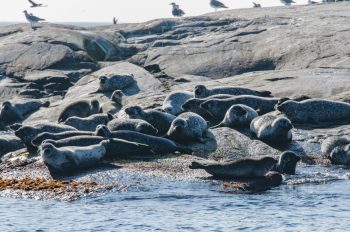
Increasing seal population will not harm largest fish stocks in the Baltic
It has long been debated whether the seal predation of fish play a major role in the fish decline in the Baltic Sea compared to human fishing. The debate escalated worldwide since conservation efforts to protect seals and fish-eating birds resulted in increased number of them. A new study taking into account human pressures on the environment, shows that the seals are not the main problem on commercial fish stocks in the open water of the Baltic Sea. “We currently have 30 000 grey seals in the Baltic Proper, but we can even have more than 100 000 seals and it will still not affect the amount of cod negatively as much as climate change, nutrient load and fisheries. (scratches head) >click to read<07:26
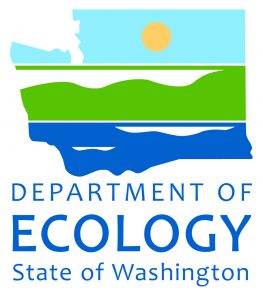
New rule: “no discharge zone” bans vessels from releasing sewage into Puget Sound
Recreational and commercial vessels will not be able to release treated or untreated sewage into Puget Sound waters under new rules approved by the state aimed at improving water quality. The Department of Ecology on Monday officially designated a new “no discharge zone” in Puget Sound to protect shellfish beds, public beaches and sensitive marine environments from harmful bacteria. There are dozens of such zones across the country, but this is the first in the Pacific Northwest. The state estimates about 215 commercial vessels and 2,000 recreational boats >click to read<16:30
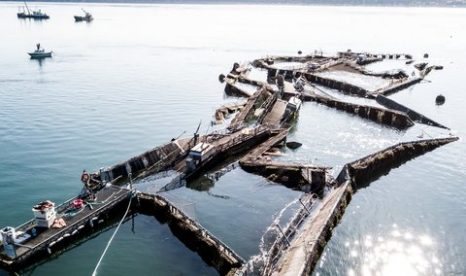
Fish farm caused Atlantic salmon spill, state says, then tried to hide how bad it was
Cooke Aquaculture Pacific vastly underrepresented the scope of a catastrophic Atlantic salmon net-pen spill at its Cypress Island farm last August and misled the public and regulators about the cause, according to a new report by state investigators that blames the pen collapse on company negligence. The investigation found that Cooke lowballed the number of escaped fish by more than half, and did not do essential maintenance at its farm, causing the escape. The company also misled agencies about the seriousness and cause of an earlier mishap,,, >click here to read< 20:26
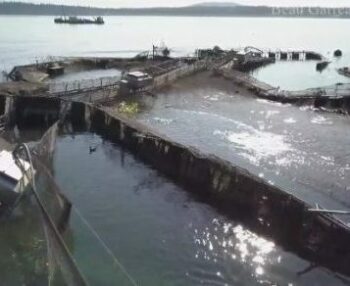
Washington State halts salmon farm permits after fish escape – Critics call for Land Based Aquaculture
Washington Gov. Jay Inslee has directed the Department of Ecology to put on hold any new permits for net pens after thousands of Atlantic salmon escaped into Puget Sound earlier this month from a damaged salmon farm. State officials also announced on Saturday the formation of a response team made up of the departments of Natural Resources, Fish and Wildlife, and Ecology. The team includes the Office of the Governor and state Emergency Management Division. It’s not yet clear how many non-native Atlantic salmon escaped into Puget Sound from Canada-based Cooke Aquaculture’s salmon farm off Cypress Island. click here to read the story 12:05
Salmon spill prompts open-net fish farm critics to tout benefits of land-based aquaculture – Critics of open-net fish farms say the escape of Atlantic salmon from a Washington state pen should convince Canada to support a transition to land-based aquaculture, used by most of the world. click here to read the story 12:09
Proposed “no discharge zone” by Washington State, Commercial vessels would have five years to comply
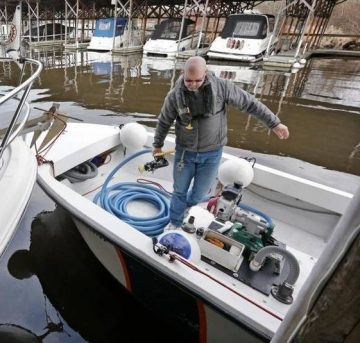 Boaters and vessel operators would not be able to release sewage, treated or untreated, into Puget Sound under a proposal by Washington state regulators. The Department of Ecology said Thursday, July 21 it and other state agencies petitioned the U.S. Environmental Protection Agency to designate the waters of Puget Sound a “no discharge zone” to improve water quality and protect shellfish beds and swimming beaches from harmful bacteria. Critics say the proposal is too broad and will be costly for many who would have to retrofit their vessels to accommodate holding tanks. They say many vessel operators currently use marine sanitation devices to treat sewage before it’s pumped overboard. If approved, the zone would immediately apply to all vessels, with the exception of tugboats, commercial fishing vessels and some boats that would have five years to retrofit their vessels. There are more than 150,000 recreational and commercial vessels in Puget Sound. Read the rest here 17:11
Boaters and vessel operators would not be able to release sewage, treated or untreated, into Puget Sound under a proposal by Washington state regulators. The Department of Ecology said Thursday, July 21 it and other state agencies petitioned the U.S. Environmental Protection Agency to designate the waters of Puget Sound a “no discharge zone” to improve water quality and protect shellfish beds and swimming beaches from harmful bacteria. Critics say the proposal is too broad and will be costly for many who would have to retrofit their vessels to accommodate holding tanks. They say many vessel operators currently use marine sanitation devices to treat sewage before it’s pumped overboard. If approved, the zone would immediately apply to all vessels, with the exception of tugboats, commercial fishing vessels and some boats that would have five years to retrofit their vessels. There are more than 150,000 recreational and commercial vessels in Puget Sound. Read the rest here 17:11
Salvage nearly complete of shipwrecked F/V Privateer
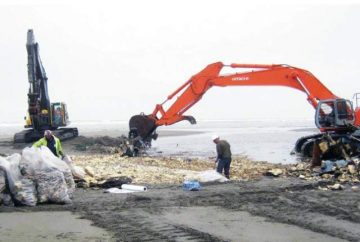 Salvage operations on the sunken, dismantled shrimp boat Privateer continued Tuesday and are close to wrapping up, nearly two months after the 74-foot vessel sank just north of the Ocean Shores jetty. But some debris and monitoring remained in place, and the latest work caused some lube oil or grease to release a sheen, according to the latest update from the Department of Ecology. In an email to city officials and others overseeing the incident, Andrea Unger of the state Department of Ecology said contractor Global Diving and Salvage “has finished deconstructing the vessel this morning and has removed most of the Privateer. They were able to remove most all the ship but some of the port-side’s metal ‘skin’ will have to remain in place. The port side of the vessel was too deeply buried in the sand.” Global used two excavators to pull out as much of the port side that was possible, Unger said. Read the rest here 15:54
Salvage operations on the sunken, dismantled shrimp boat Privateer continued Tuesday and are close to wrapping up, nearly two months after the 74-foot vessel sank just north of the Ocean Shores jetty. But some debris and monitoring remained in place, and the latest work caused some lube oil or grease to release a sheen, according to the latest update from the Department of Ecology. In an email to city officials and others overseeing the incident, Andrea Unger of the state Department of Ecology said contractor Global Diving and Salvage “has finished deconstructing the vessel this morning and has removed most of the Privateer. They were able to remove most all the ship but some of the port-side’s metal ‘skin’ will have to remain in place. The port side of the vessel was too deeply buried in the sand.” Global used two excavators to pull out as much of the port side that was possible, Unger said. Read the rest here 15:54

































